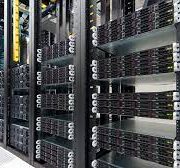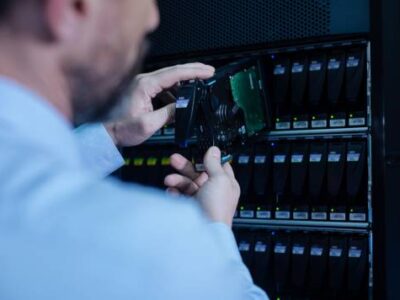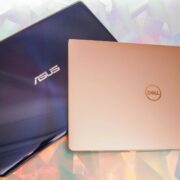In the ever-evolving landscape of information technology, having a robust and reliable IT infrastructure is crucial for the success of any organization. Servers form the backbone of this infrastructure, powering critical operations such as data storage, application hosting, and network management. However, choosing and assessing servers can be a complex task, with numerous factors to consider. This blog will guide you through the key considerations when buying and assessing servers for your IT infrastructure, ensuring you make informed decisions that align with your organization’s needs.
1. Performance and Scalability
One of the primary factors to consider is the performance capability of the server. Assess the server’s processing power, memory capacity, and storage scalability to ensure it can handle your workload requirements effectively. Consider the anticipated growth of your organization and choose a server that offers scalability options to accommodate future expansion.
2. Compatibility with Workloads
Different workloads have varying demands on servers. Evaluate your specific use cases and identify the compatibility requirements. For example, if you are running resource-intensive applications, ensure the server has sufficient processing power and memory to support them efficiently. Similarly, if your workload involves high data transfer rates, prioritize servers with fast networking capabilities.
3. Reliability and Redundancy
Server reliability is crucial for maintaining uninterrupted operations. Look for servers that offer redundancy features such as redundant power supplies, hot-swappable components, and RAID configurations for data protection. Consider the server’s track record for reliability, as well as the availability of reliable technical support and warranty options.
4. Energy Efficiency
As environmental concerns grow, energy efficiency has become a key consideration. Opt for servers that are designed to consume less power without compromising performance. Energy-efficient servers not only reduce operational costs but also contribute to sustainability initiatives.
5. Management and Monitoring Capabilities
Efficient server management and monitoring are essential for maintaining optimal performance and addressing potential issues proactively. Consider servers that provide comprehensive management tools, remote access capabilities, and monitoring features. These tools enable you to monitor resource utilization, troubleshoot problems, and perform routine maintenance tasks effectively.
6. Security Features
Data security is a top priority for any organization. Evaluate the server’s security features, such as built-in encryption options, secure authentication mechanisms, and robust access controls. Ensure the server aligns with your organization’s security policies and compliance requirements.
7. Form Factor and Physical Space
Consider the physical space available for housing servers and choose a form factor that fits your requirements. Rack-mounted servers are popular for data centers, while tower servers are suitable for smaller environments. Evaluate the server’s dimensions, cooling requirements, and ease of maintenance based on your available space.
8. Vendor Reputation and Support
When purchasing servers, it is essential to consider the reputation and reliability of the vendor. Research their track record, customer reviews, and the quality of their support services. A reputable vendor will provide timely technical assistance, regular firmware updates, and long-term support for their products.
9. Total Cost of Ownership (TCO)
While the upfront cost of a server is a crucial factor, it’s equally important to assess the total cost of ownership (TCO) over its lifespan. Consider factors such as power consumption, maintenance costs, warranty coverage, and potential scalability expenses. A comprehensive understanding of the TCO will help you make a more informed decision based on long-term affordability.
10. Future Proofing and Technology Trends
Technology advancements occur at a rapid pace, and it is essential to future-proof your investment. Stay updated with emerging technologies and industry trends. Consider servers that offer flexibility to integrate new technologies, support virtualization, and align with emerging standards. This approach ensures your IT infrastructure remains adaptable and capable of accommodating future advancements.
Conclusion
By considering these key factors when buying and assessing servers for your IT infrastructure, you can make informed decisions that align with your organization’s needs, enhance performance, ensure reliability, and contribute to the growth and success of your business. Take the time to evaluate your requirements, research vendors, and carefully select servers that will provide a solid foundation for your IT infrastructure.





















Comments